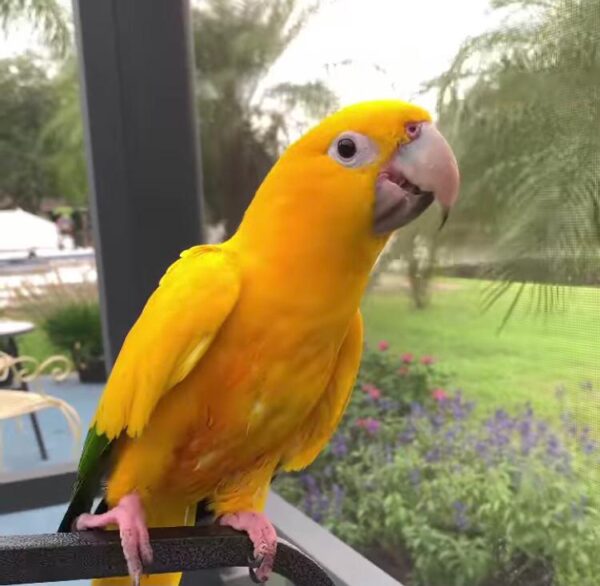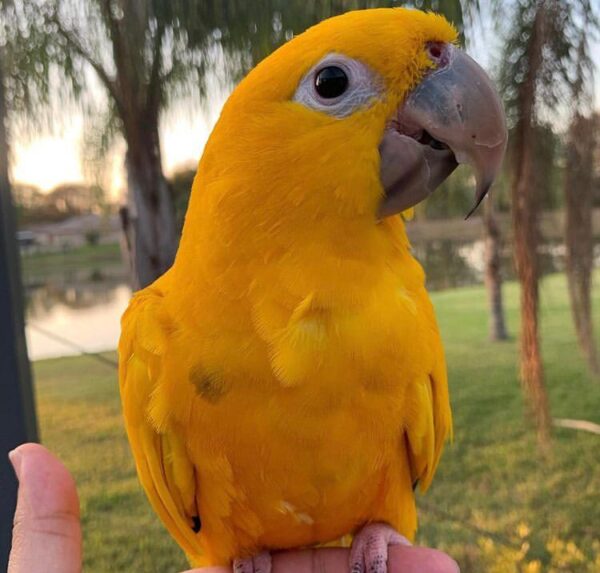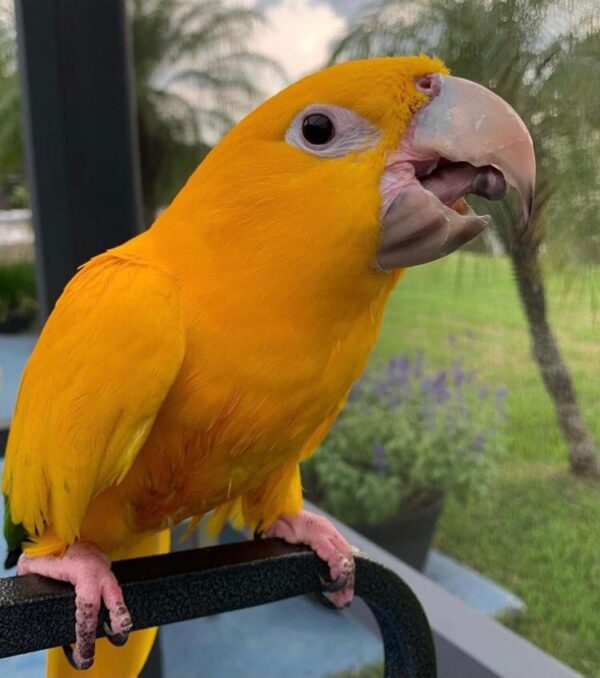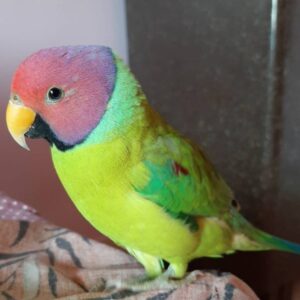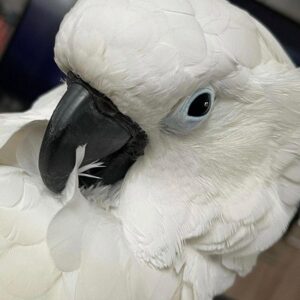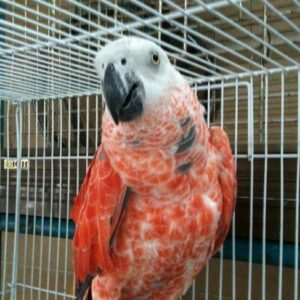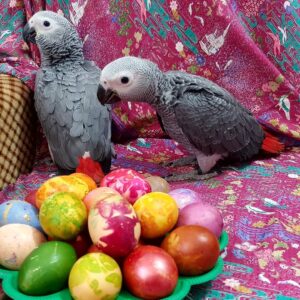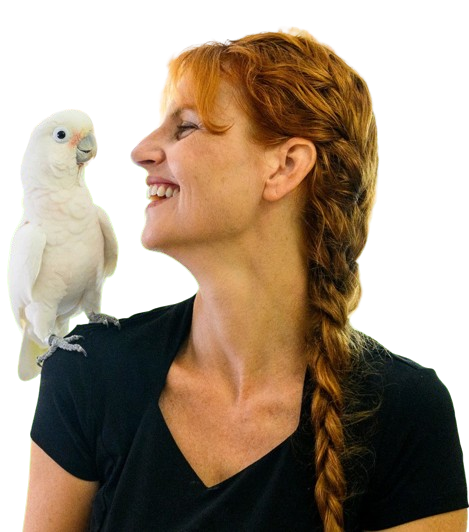Description
Queen of Bavaria Conure
Golden conures are active pets that love to climb, chew, and play. Owners must be diligent to supervise these birds when out of the cage to avoid accidents due to their overwhelming curiosity about the world around them.
Being a conure, these birds are very vocal and can produce loud screams, making them a poor choice for those who live in apartments or condominiums. They can, however, develop a rather extensive vocabulary.
Golden conures are highly intelligent and need plenty of mental stimulation in order to prevent boredom and destructive behavior patterns from setting in. In this regard, it’s slightly more sensitive than many other parrots.
While feather plucking is often a warning you’ll hear with neglected or bored parrots, for golden conures, stress is the leading cause of this self-destructive behavior they seem prone to. It can be prevented with tons of attention and distractions and giving the bird a certain amount of freedom.
Golden Conure Colors and Markings
Golden conures are often mistaken for macaws because of their larger head and beak. The tell-tale difference is that the conure’s tail is much shorter than what you’ll find on macaws. Mature golden conures are a bright yellow color all over their bodies. The only exception is the tips of the flight feathers, which are dark green in color. They have a bald ring around their eyes, horn-colored beaks, and pink legs and feet. Juvenile golden conures can be identified by green speckles in the yellow plumage of the body.
Caring for a Golden Conure
Golden conures are affectionate, beautiful, and intelligent, making them excellent pets. Unfortunately, they are rather expensive and nearly as rare in captivity as they are in the wild. They can be quite hard to find as their sale is heavily regulated both in and outside of the United States.
Don’t worry, though, if you have your heart set on owning a golden conure, it is possible. Do plenty of research on what’s required before you adopt. To locate a golden conure breeder, a great place to start is Bird Talk magazine’s breeder directory.
If and when you are able to locate an available golden conure, you will be rewarded with an incredibly entertaining and interactive pet. Owners report that their birds have been able to learn many fun tricks, develop impressive vocabularies, and even seem to speak in context at times.
It’s important that your bird does not feel confined most of the time. The golden conure’s high energy level needs to be taken into account when selecting a cage. It should be large enough to give him room to roam, climb around, and burn energy. They rarely fly in captivity but that doesn’t mean these acrobats will be happy in a smaller dwelling.
